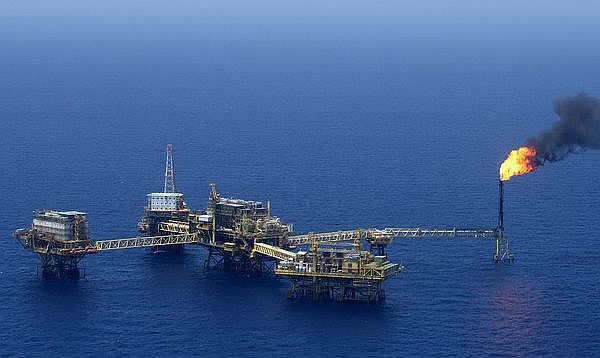Mexico City, Mexico — The recent plunge in oil prices is prompting Mexico’s government to consider scaling back the initial bidding for its momentous plans to reopen its oil and gas industry to private companies, and to offer them better terms.
The government is now likely to delay or scale down tenders for some of the oil fields and areas that it planned to offer in the coming months, especially in areas with shale oil where recovery costs are higher than in traditional oil fields, energy minister Pedro Joaquín Coldwell said last week.
He said the auctions for deep-water fields were unlikely to change because they were longer-term investments, but that other fields with "nonconventional oil, shale gas and shale oil" were likely to be delayed or reduced in scope—including the Chincontepec field, a major onshore area with lots of oil stuck under nonporous rock.
Even before Mr. Coldwell’s comments, the euphoria that greeted Mexico’s moves to open its energy industry for the first time in 76 years had slowly given way to concerns that the first-round bids could be less lucrative for the government than it had expected.
Complicating matters, President Enrique Peña Nieto now faces a political crisis two years into his rule, amid public cries for government accountability in the disappearance of 43 students and allegations of favoritism in awarding government contracts.
The president’s approval rating of about 40 percent is the lowest for a Mexican leader in nearly two decades, raising the question of whether the president has the political capital to sustain his reform agenda, analysts said.
"This really is a tsunami that is hitting right now, and clearly at the worst possible time," said John Padilla, managing director for oil consultancy IPD Latin America.
To be sure, Mr. Padilla and others believe that the fundamentals of the energy overhaul are solid and that oil prices could bounce back in time for the initial bids for 109 exploratory blocks and 60 production fields during the course of the year. Shallow-water fields are scheduled to go first, with blocks in deep Gulf waters likely dragging out until the end of 2015.
In addition to low oil prices, Mexico’s regulators have been struggling with putting together a large bid round in a short period of time with vast new responsibilities and limited staff, analysts said.
"They’re saying that it’s all about oil prices, but it’s also about recognizing that the amount of work involved in launching a bid round is tremendous and that could have factored into this as well," Mr. Padilla said.
Industry officials say lower oil prices won’t turn off the major oil companies to one of the most exciting developments in the global oil and gas sector in recent memory, given Mexico’s significant oil and gas reserves and huge unexplored offshore areas likely rich with resources. But the change in the price climate could make oil firms pickier about where they put their investments.
"I don’t think there’s any question that in an oil-price environment like we see now…where cash flows are down and the stress is a little bit higher on that side, it would be naive to say that won’t have some impact on how the industry responds," said Marvin Odum, upstream Americas director for Royal Dutch Shellin an interview. Nonetheless, Mr. Odum said, deep-water areas remain attractive because they are long-term projects. "You really have to take a long-term view of where you think oil prices will be."
Gabriel Salinas, an energy lawyer at Mayer Brown in Houston, said the bid-round modification makes sense. "Leaving some areas out of one round and putting these areas into a future round is not a big concern. It’s just economics."
The Energy Ministry and the National Hydrocarbons Commission are working to prepare "model contracts" that will set critical terms for the bid round that includes potential oil and gas resources in exploratory blocks of around 15 billion barrels of oil equivalent, and probable reserves of about 4 billion barrels in the oil fields set to be awarded.
The regulators missed the November deadline for those contracts and Mr. Coldwell said they should come out this week.
Original Story


